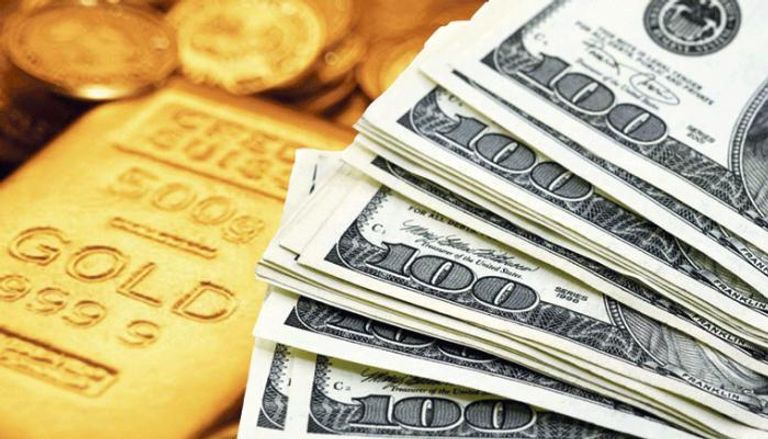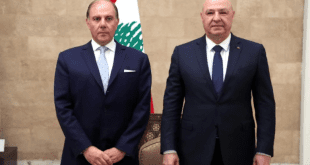لبنان 2024: عام مليء بالصدمات بين الأزمات الاقتصادية والتحولات السياسية
مرّ عام 2024 على لبنان كمرحلة مفصلية أخرى في تاريخ البلاد، حيث شكّل استكمالًا للأزمات المستمرة منذ عام 2019. كان العام حافلًا بالأحداث الاقتصادية والسياسية التي حملت للبنانيين لحظات من الأمل وأخرى من الإحباط، في ظل تذبذب الأوضاع بين بعض التطورات الإيجابية المحدودة والانهيارات المتتالية التي أثقلت كاهل المواطن اللبناني.
أبرز المحطات الاقتصادية والسياسية في 2024
كانون الثاني
شهد بداية العام ارتفاعًا طفيفًا في احتياطيات مصرف لبنان بمقدار 62 مليون دولار، إلى جانب خفض الكتلة النقدية بالليرة اللبنانية بنسبة 29%. ورغم هذه الخطوات، لم تكن كافية لطمأنة الأسواق بسبب استمرار التوترات السياسية.
شباط
انتهت المهلة المحددة لتنفيذ الإصلاحات الاقتصادية المطلوبة دون أي تقدم يُذكر، حيث ظلت الخلافات السياسية الحادة حجر عثرة أمام أي تقدم ملموس.
آذار
استقر سعر صرف الدولار عند مستوى 89,500 ليرة لبنانية، بفضل عمليات ضبط السوق والدولرة شبه الكاملة التي فرضت نفسها كواقع جديد على الاقتصاد اللبناني.
نيسان
شهدت البلاد انخفاضًا ملحوظًا في معدل التضخم، الأمر الذي انعكس إيجابًا على القدرة الشرائية للمواطنين ولو بشكل محدود، نتيجة استقرار سعر الصرف.
أيار
اتجه القطاع الخاص للتأقلم مع الوضع الاقتصادي الصعب، وسط تسجيل فائض طفيف في ميزان المدفوعات، وهو ما اعتُبر نقطة مضيئة في عام مليء بالتحديات.
حزيران
جاءت الصدمة مع الادعاء على حاكم مصرف لبنان السابق رياض سلامة، في قضايا تتعلق باختلاس أموال، ما أثار جدلًا واسعًا داخل الأوساط السياسية والشعبية.
تموز
طرحت الحكومة خطة لإعادة أموال المودعين، لكنها ظلت حبراً على ورق بسبب الخلافات الداخلية حول آليات التنفيذ وغياب الثقة الشعبية في المؤسسات الرسمية.
آب
شهد الشهر تصعيدًا في التوترات الإقليمية مع إسرائيل، ما أثر على حركة الطيران والنقل. ومع ذلك، أظهرت شركة “طيران الشرق الأوسط” (MEA) براعة في إدارة الأزمة.
أيلول
تم توقيف رياض سلامة بشكل مفاجئ، بالتزامن مع مواجهة عسكرية بين “حزب الله” وإسرائيل، ما زاد من تعقيد الوضع السياسي والاقتصادي في البلاد.
تشرين الأول
تعرض لبنان لانتكاسة كبيرة مع إدراجه على “اللائحة الرمادية”، ما أدى إلى تعميق أزمته الاقتصادية وصعوبة الحصول على دعم مالي دولي.
تشرين الثاني
تباينت التقديرات حول حجم الخسائر الناتجة عن المواجهات العسكرية، مع استمرار تعليق خطط إعادة الإعمار وعدم وجود رؤية واضحة للخروج من الأزمة.
كانون الأول
اختُتم العام باستمرار مصرف لبنان في تقديم دفعات مالية استثنائية للمودعين، وسط آمال بانتخاب رئيس جديد يعيد بعض الاستقرار إلى المشهد السياسي في العام المقبل.
لبنان في مفترق الطرق
يُختتم عام 2024 كمرحلة مليئة بالصدمات والآمال المؤجلة. لا يزال اللبنانيون يعيشون حالة من الترقب، بانتظار أن تحمل السنة الجديدة تغييرات جذرية تضع البلاد على طريق التعافي.
Lebanon 2024: A Year of Shocks Amid Economic Crises and Political Transformations
The year 2024 marked another critical phase in Lebanon's history, as the nation grappled with ongoing crises that have plagued it since 2019. This year was filled with key economic and political milestones, oscillating between fleeting moments of optimism and persistent challenges that weighed heavily on the Lebanese population.
Key Economic and Political Highlights of 2024
January
The year began with a slight increase in Banque du Liban’s reserves by $62 million, alongside a 29% reduction in the Lebanese pound’s monetary supply. However, these measures fell short of restoring market confidence due to ongoing political tensions.
February
The deadline for implementing essential economic reforms expired without any tangible progress, as political divisions continued to obstruct any meaningful developments.
March
The Lebanese pound's exchange rate stabilized at 89,500 per U.S. dollar, thanks to market regulation efforts and the near-complete dollarization of the economy, which became a new reality for Lebanon.
April
A significant decline in inflation rates brought temporary relief to citizens' purchasing power, reflecting the stability in the exchange rate.
May
The private sector began adapting to the challenging economic environment, achieving a slight surplus in the balance of payments—one of the few positive developments in an otherwise difficult year.
June
The arrest of former Banque du Liban Governor Riad Salameh on charges of embezzlement created a major stir across political and public spheres.
July
The government announced a plan to return depositors’ funds, but it failed to progress due to internal disagreements and the public’s mistrust in official institutions.
August
Rising tensions with Israel disrupted aviation and transportation sectors, though Middle East Airlines (MEA) managed the crisis efficiently, showcasing resilience amid challenges.
September
The detention of Riad Salameh coincided with a military confrontation between Hezbollah and Israel, exacerbating the nation’s already complex political and economic situation.
October
Lebanon suffered a significant setback when it was added to the “grey list,” deepening its economic crisis and complicating access to international financial aid.
November
Conflicting assessments emerged regarding the financial losses caused by the military confrontations, while reconstruction plans remained on hold with no clear roadmap for recovery.
December
The year concluded with Banque du Liban continuing exceptional payouts to depositors, as hopes lingered for the election of a new president in the upcoming year to restore some semblance of political stability.
Lebanon at a Crossroads
As 2024 comes to an end, it leaves behind a legacy of challenges and deferred hopes. The Lebanese people remain in a state of anticipation, looking to the new year for transformative changes that could steer the country toward recovery.
Translated by economyscopes team
المصدر: عماد الشدياق – نداء الوطن
 سكوبات عالمية إقتصادية – EconomyScopes إجعل موقعنا خيارك ومصدرك الأنسب للأخبار الإقتصادية المحلية والعربية والعالمية على أنواعها بالإضافة الى نشر مجموعة لا بأس بها من فرص العمل في لبنان والشرق الأوسط والعالم
سكوبات عالمية إقتصادية – EconomyScopes إجعل موقعنا خيارك ومصدرك الأنسب للأخبار الإقتصادية المحلية والعربية والعالمية على أنواعها بالإضافة الى نشر مجموعة لا بأس بها من فرص العمل في لبنان والشرق الأوسط والعالم




